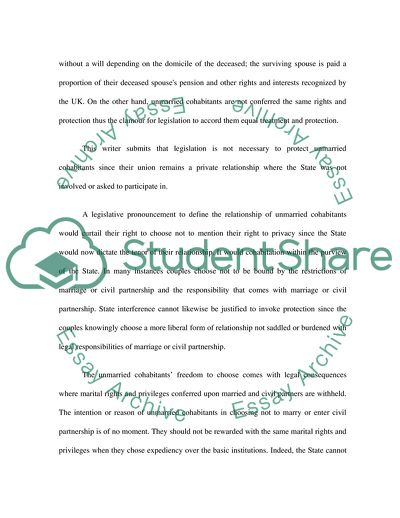Cite this document
(The Protection of Unmarried Cohabitants Essay Example | Topics and Well Written Essays - 1500 words - 1, n.d.)
The Protection of Unmarried Cohabitants Essay Example | Topics and Well Written Essays - 1500 words - 1. https://studentshare.org/law/1769972-family-law
The Protection of Unmarried Cohabitants Essay Example | Topics and Well Written Essays - 1500 words - 1. https://studentshare.org/law/1769972-family-law
(The Protection of Unmarried Cohabitants Essay Example | Topics and Well Written Essays - 1500 Words - 1)
The Protection of Unmarried Cohabitants Essay Example | Topics and Well Written Essays - 1500 Words - 1. https://studentshare.org/law/1769972-family-law.
The Protection of Unmarried Cohabitants Essay Example | Topics and Well Written Essays - 1500 Words - 1. https://studentshare.org/law/1769972-family-law.
“The Protection of Unmarried Cohabitants Essay Example | Topics and Well Written Essays - 1500 Words - 1”. https://studentshare.org/law/1769972-family-law.


